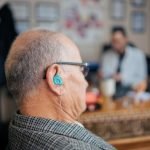This blood pressure number is linked to brain scars, dementia
A recent study conducted by the University of Miami has suggested that diastolic blood pressure, the bottom number in a blood pressure reading, may...
Hot flashes during sleep may be early sign of Alzheimer’s disease
A new study presented at the 2023 Annual Meeting of The Menopause Society in Philadelphia suggests that hot flashes, particularly during sleep, experienced by...
Alzheimer’s disease basics, what you can do to prevent it
Alzheimer’s disease is feared by many ― and for good reason.
The brain disorder slowly destroys memory along with a person’s ability to reason, speak,...
Blood pressure fluctuations are link to dementia risk
A groundbreaking study by the University of South Australia (UniSA) has uncovered a crucial link between fluctuating blood pressure and the risk of dementia...
Dementia: negative thinking linked with more rapid cognitive decline
Dementia affects an estimated 54 million people worldwide. There no cure, but reports indicate that approximately a third of dementia cases may be preventable,...
Fitness may protect your memory from sleep loss
A recent study by McGill University, published in Medicine & Science in Sports & Exercise, reveals that individuals with higher cardiorespiratory fitness might have...
Exercise can improve your brain health after a bad night’s sleep
A recent study led by the University of Portsmouth has revealed fascinating insights into the relationship between exercise, sleep, and cognitive performance.
The study, published...
Scientists find a new way to protect against Alzheimer’s
Alzheimer's disease, a condition marked by memory and cognitive decline, begins developing in the brain decades before symptoms appear.
As the disease progresses, the brain...
Long COVID in nursing homes can harm brain function in older people
COVID-19 has been a major concern for nursing homes, where older adults live in close proximity to each other.
A recent study led by researchers...
Scientists find hearing loss is linked to dementia
A recent study, involving a collaboration between the University of California San Diego and Kaiser Permanente Washington Health Research Institute, sheds light on how...










